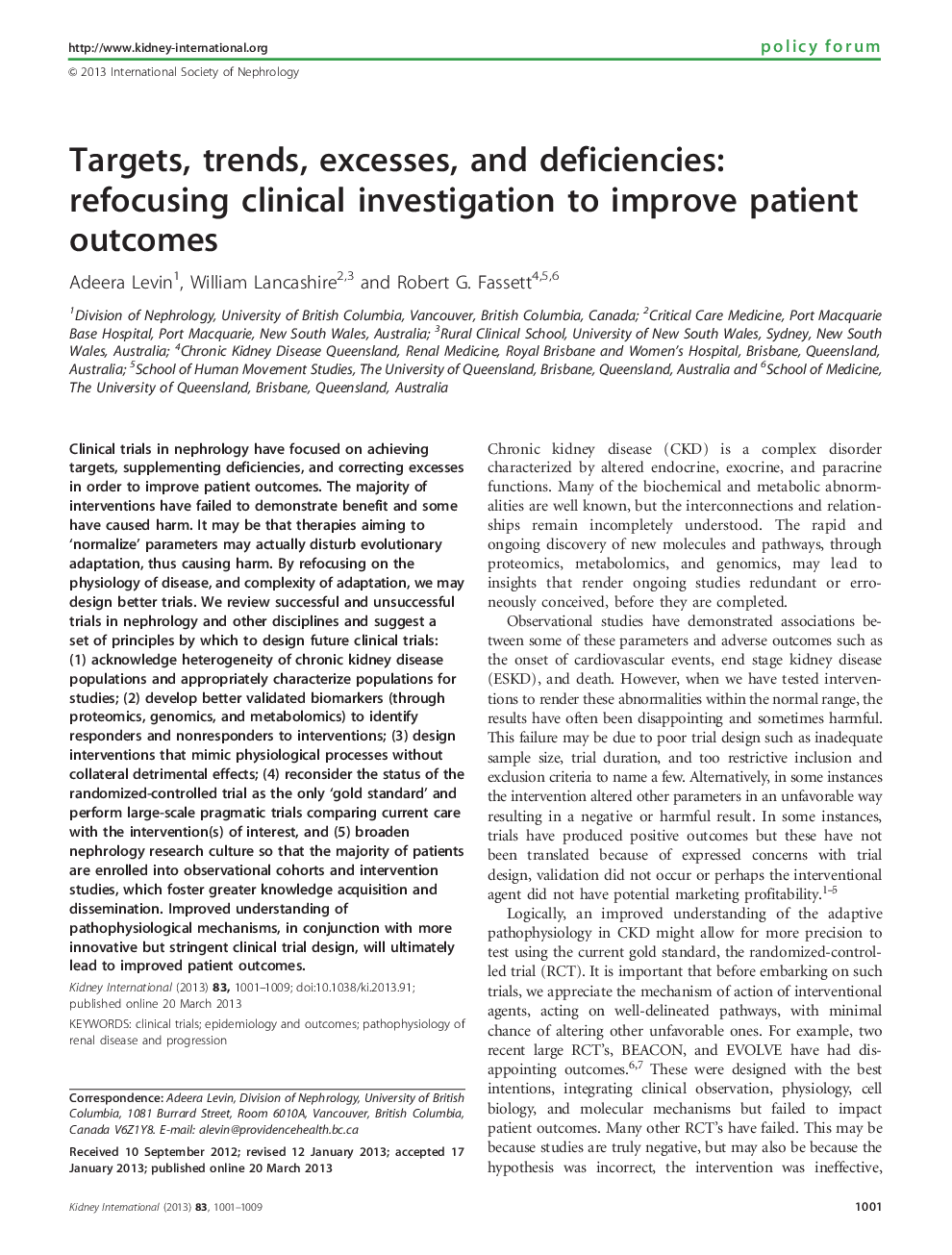| Article ID | Journal | Published Year | Pages | File Type |
|---|---|---|---|---|
| 6163748 | Kidney International | 2013 | 9 Pages |
Clinical trials in nephrology have focused on achieving targets, supplementing deficiencies, and correcting excesses in order to improve patient outcomes. The majority of interventions have failed to demonstrate benefit and some have caused harm. It may be that therapies aiming to 'normalize' parameters may actually disturb evolutionary adaptation, thus causing harm. By refocusing on the physiology of disease, and complexity of adaptation, we may design better trials. We review successful and unsuccessful trials in nephrology and other disciplines and suggest a set of principles by which to design future clinical trials:(1) acknowledge heterogeneity of chronic kidney disease populations and appropriately characterize populations for studies; (2) develop better validated biomarkers (through proteomics, genomics, and metabolomics) to identify responders and nonresponders to interventions; (3) design interventions that mimic physiological processes without collateral detrimental effects; (4) reconsider the status of the randomized-controlled trial as the only 'gold standard' and perform large-scale pragmatic trials comparing current care with the intervention(s) of interest, and (5) broaden nephrology research culture so that the majority of patients are enrolled into observational cohorts and intervention studies, which foster greater knowledge acquisition and dissemination. Improved understanding of pathophysiological mechanisms, in conjunction with more innovative but stringent clinical trial design, will ultimately lead to improved patient outcomes.
